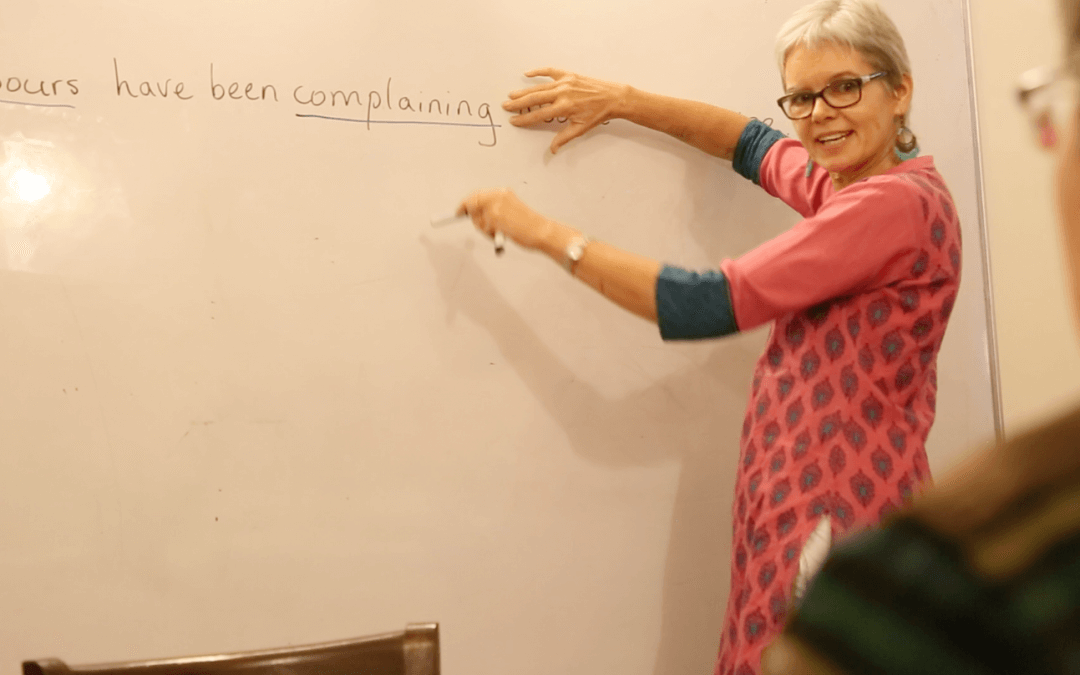
The Remarkable Use of English in India
‘’In this blog Rakesh Saraf talks about some interesting and amusing usages in Indian English.’’
When I left India for the first time, I was in my late teens, freshly educated in a Scottish Baptist school, and taught English by Englishmen who were very intolerant of any deviations from the Queen’s (yes, Queen Elizabeth was Queen even then!) English. So, when I arrived in England, I spoke better English than most natives. The word ‘natives’ brings another slightly amusing story to my mind. Once, after 3 months of my being trained for an Accountancy degree in England, I was asked by a colleague what I thought of England. Tongue in cheek, I responded, “Well, the natives seem friendly enough”. For some reason he took offence at that, I wonder why!
But I digress. After 15 years of living overseas, during which time I had made a total of 3 visits to India, two out of which were to get engaged and then married to my childhood sweetheart, I returned to India with said sweetheart and a 3 year old daughter and 3 month old son in tow. Then began the true Indianisation of Rakesh Saraf. It took several tortuous years and countless blasphemous moments, but I got there eventually. Today, all traces of England and Canada are gone from my façade. India never left my heart, so that never needed to come back.
The things that amaze me about India are many, and this piece does not intend to cover anything other than how we speak English in this country. I have marveled at the dexterity and ease with which we change the language and context of its usage to describe situations that are not unique to India but are viewed differently here than elsewhere where English is used. Before I go there, please do not get me wrong. This is not a piece to criticize how we speak in India. It is a piece that marvels at the dexterity with which we adapt what is basically a foreign language to suit our unique needs of expression. Here are the first few examples:
- “Mom has gone marketing.” This was a response I got when I asked my friend when visiting him, as to where “Aunty” was. At first, I was speechless. And eventually an old memory returned. We often make verbs out of nouns. What he meant to say was “Mom has gone to the market.” So really, when you are Indian, making a verb out of a noun is a normal practice. Delightful!
- The absolutely reckless use of the words “Uncle” and “Aunty” (as opposed to “Aunt”) is another delightful uniquely Indian practice. This description would be incomplete unless I describe it in 2 parts:
- In Western countries uncles are typically called Uncle Bob, or Uncle Richard, with the prefix being the defining relationship, and the first name following it. And an aunt would be called “Aunt Rachel” or “Aunt Jane”. Not in India. I am not known as Uncle Rakesh but rather as Rakesh Uncle, which is a delightful variation and much more endearing than Uncle Rakesh. I love it! And Aunts are not Aunts, but Aunties, or “Aunty” in singular form. So, it would be “Smita Aunty”, or “Barkha Aunty”. Again much more endearing than the formal variation
- The other and even more amazing feature is the almost reckless use of these relationships, sometimes to ludicrous levels. I remember soon after returning to India in my early 30s, answering a bell at the gate to find an old man, (could not have been less than his late 70s) asking me “Uncle, pani milega kya (Uncle can you give me some water to drink?)” I was baffled. Could this chap not see that I was perhaps even younger than his son? Over a period of time, it sank in that we use Uncle conveniently in place of a more formal “Sir” to denote respect for another person. Usually that other person is older of course. I think it actually works as a familiar form of ‘Sir” or “Ma’am” or Mr. or Mrs. For example, my daughter’s and son’s friends easily adopt me as an uncle, regardless of the fact that there is no such relationship. Absolutely charming and endearing, in my view.
- For today, I will end with a 3rd example and, if this kind of blog writing is liked, I will continue with other examples in a later post. This 3rd example is tragi-comic. Sometime in the mid 90s, I remember an employee in a software company I was running at the time, coming into my office one day, and saying, “Sir, I need the day off tomorrow, as my father is serious.” My first reaction was “Huh? Is that a state of mind that requires a son to take a day off?” Serious to me then meant a definition of demeanour, not a medical condition. What he meant to say, of course, was that my father is in serious condition. He should also have specified what caused the serious condition. But in India, that is all trivial detail that need not be specified. It is enough to use the word “serious”, and it is gauche to ask “with what”.
As I said at the beginning, in the 36 years I have been back, this country has never ceased to amaze me, and still does. I am blessed to be able to witness this and write about it.




